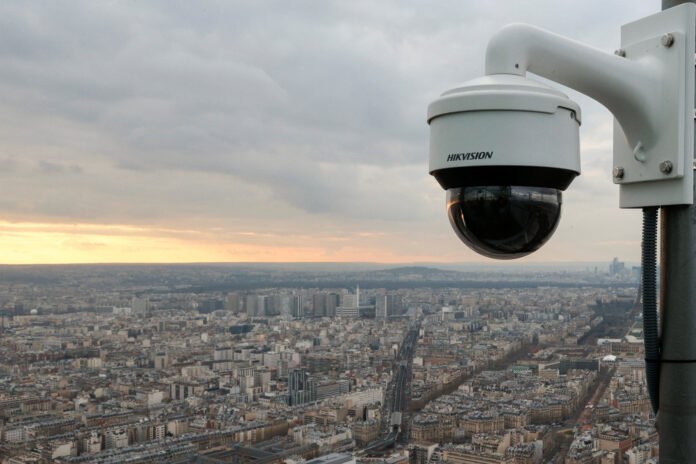
In a move that has sparked significant debate over civil liberties, police prefect Laurent Nuñez addressed the French parliament’s law committee this week, advocating for the expansion of algorithmic video surveillance technology beyond the upcoming Paris 2024 Olympics.
Nuñez asserted that the technology has “proved its usefulness,” following positive results from a recent security experiment conducted in preparation for the Games.
The introduction of algorithmic video surveillance in France stems from a law passed in 2023, which permits its use during the Olympics until March 31, 2025.
This advanced surveillance system employs artificial intelligence to analyze footage captured by surveillance cameras, automatically identifying “abnormal” events.
Examples include detecting an individual falling or noticing crowd movements indicative of panic. Importantly, the system does not utilize facial recognition, a point emphasized by law enforcement to alleviate some privacy concerns.
Despite assurances from authorities that the implementation of AI surveillance will be limited, civil rights organizations have voiced strong objections.
Amnesty International’s Katia Roux highlighted the psychological impact of surveillance on individuals, stating, “When people know they are being watched, they tend to modify their behavior, to censor themselves and perhaps not to exercise certain rights.”
Roux further pointed out that any form of surveillance in public spaces constitutes an intrusion on privacy rights, demanding a careful evaluation of necessity and proportionality under international law.
Concerns also arise regarding the potential biases embedded within the AI technology itself. Critics argue that the data used to train these systems could amplify existing discriminatory biases, resulting in disproportionate targeting of marginalized communities.
Roux noted that similar surveillance initiatives in other nations have shown tendencies to unfairly impact specific population groups already facing societal marginalization.
Civil liberties groups warn that this initial foray into algorithmic video surveillance may pave the way for more invasive technologies, such as facial recognition, which have raised significant ethical and privacy concerns in past implementations.
Analysts describe the current developments as a “foot in the door,” suggesting that once accepted, the groundwork will be laid for more problematic applications of AI surveillance in the future.
Historical precedents underline these fears. The London 2012 Olympics saw an extensive deployment of surveillance cameras, which have since remained in place.
Similarly, the 2018 FIFA World Cup in Russia allowed for the trial of facial recognition technologies that continue to be utilized in public spaces today.
These examples exemplify how temporary measures can evolve into permanent fixtures, raising alarms among advocates for civil liberties.
In light of these ongoing concerns, the French government is expected to submit a report on the deployment of AI video surveillance to parliament by the end of this year.
As the nation prepares for the global spotlight of the Olympics, the balance between enhanced security measures and the preservation of individual rights remains a contentious issue.
Advocates for civil liberties continue to call for transparency and accountability from the authorities, urging a critical examination of the long-term implications of algorithmic surveillance in public spaces.